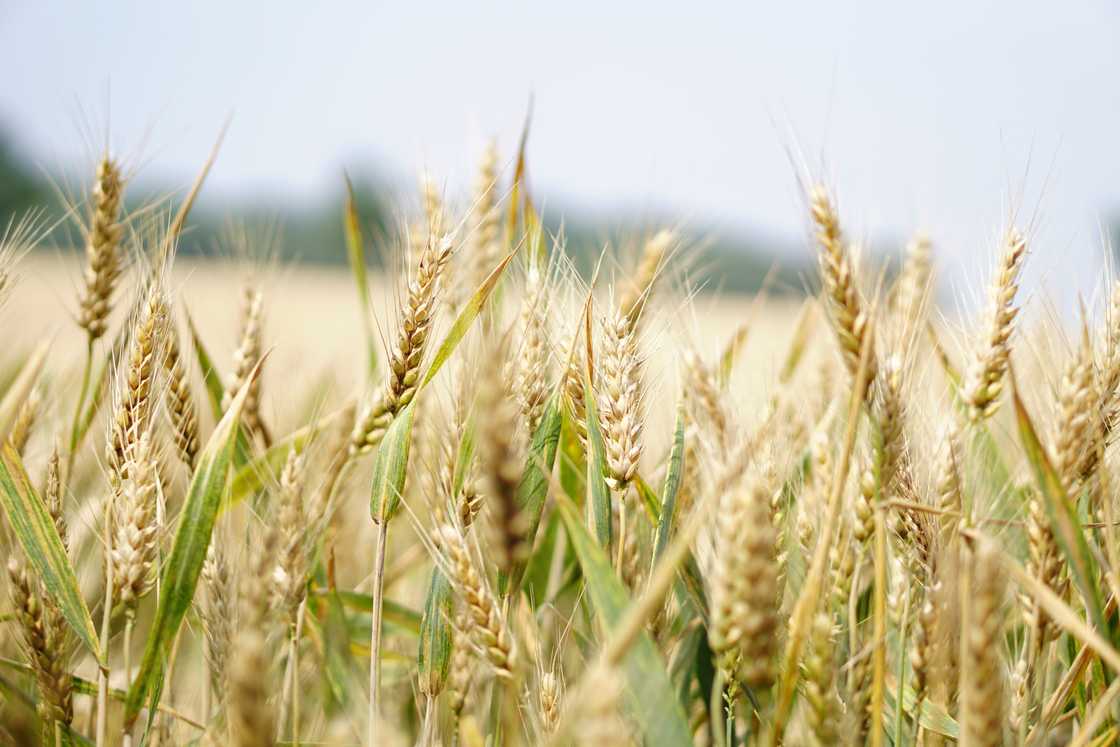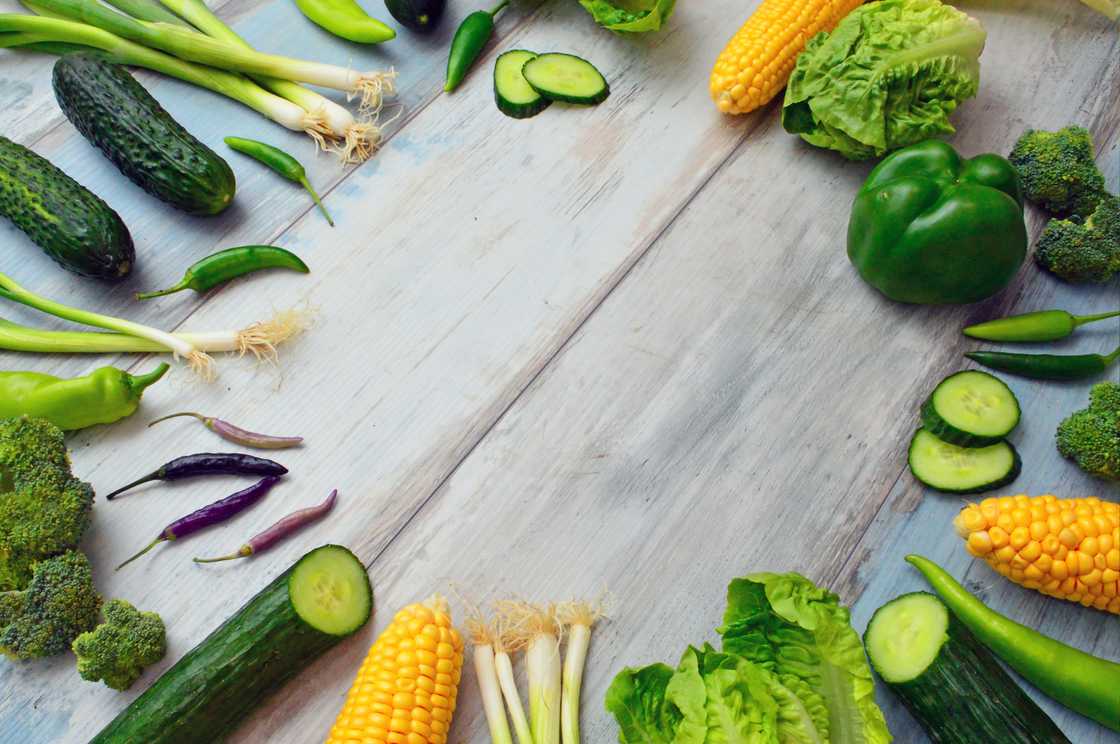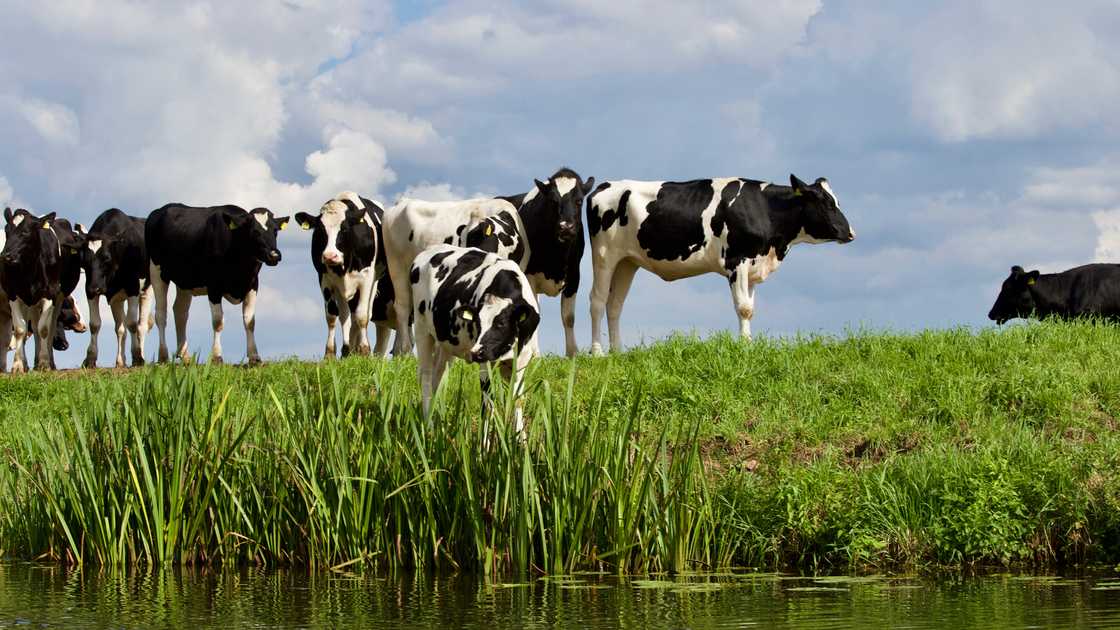Importance of agriculture in Ghana: 10 advantages of agriculture
Agriculture accounts for about 20% of Ghana's GDP. Some of the country's top agricultural products include rice, cocoyam, and cassava. What is the importance of agriculture in Ghana, and how essential is the sector to the country's economy?
PAY ATTENTION: Сheck out news that is picked exactly for YOU ➡️ find “Recommended for you” block on the home page and enjoy!

Source: UGC
The importance of agriculture to the economic development of Ghana cannot be overlooked, seeing as the sector contributes more than a quarter of the country's GDP.
The economic importance of agriculture in Ghana
What are the 10 advantages of agriculture? Here is a look at the 10 importance of farming in Ghana.
1. National income contribution
The economic backgrounds of many progressive nations have proven that agricultural wealth contributes considerably to boosting economic development. Most leading industrialized nations were once principally agricultural. Today, we see that developed countries still dominate the sector, and farming largely contributes to their income.
PAY ATTENTION: Click “See First” under the “Following” tab to see YEN.com.gh News on your News Feed!
The contribution to national income is possibly the most important economic importance of agriculture in Ghana. Farmers can easily sustain their livelihoods and those of people employed in farms and other agriculture-allied industries. Without the agricultural sector, this income would be non-existent.
2. Source of food

Source: UGC
One of the main reasons why the agricultural sector is important in Ghana is because it is the leading source of food. The country's rapidly growing population exerts massive pressure on the food supply, making it necessary to have a vibrant agricultural sector.
Without a consistent food source, societies quickly descend into chaos. If farming does not meet the growing demand of the community, economic growth slows down.
3. Provision of raw materials for various industries
Numerous industries rely on farm produce for their existence and growth. Some Ghanaian agriculture-allied industries include the sugar industry, textile mills, flour milling, and milk packaging.

Read also
How the Government of Ghana can cushion the real estate sector from the economic hardship in Ghana
If the agricultural sector in Ghana declines, these allied industries will be directly affected. What would follow is an economic collapse of these and other sectors that directly or indirectly rely on farming activities.
4. Infrastructural growth

Source: UGC
Ghana has seen the creation and expansion of numerous infrastructural facilities primarily due to agriculture. These include roads meant to transport farm produce from farms to markets, storage facilities, cooling facilities near airports, and logistics companies centred on agricultural produce.
Without the necessary infrastructural network and services, agriculture cannot thrive in any nation. Hence, agriculture creates the need for the creation and improvement of these infrastructural facilities.
5. Enhancing rural prosperity
In countries like Ghana, the rural economy relies on farming and related activities. The increasing agricultural surplus due to the growing agrarian output improves social well-being, especially in rural areas. The standard of life of the rural population rises, getting it closer to parity with urban life.
In nations where rural areas contribute little to no economic value, the difference in urban and rural living standards can be quite massive.
6. Relieving forex pressure
The forex-related importance of agriculture to the economy of Ghana keeps growing each year. Without farming, Ghana's currency would be under immense pressure. This is because the country would have to import food in addition to the numerous other commodities it imports.
The result would be a severely weakened currency because of significant disparity in the country's imports and exports.
The ever-increasing demand for farm produce in foreign countries plays a huge role in relieving forex pressure off the Ghanaian Cedi.
7. Contribution to internal tax revenue

Source: UGC
Countries rely on tax revenue as one of the main sources of internal funding. Still, this would not work if there were no economic sectors from which to get the tax revenue. In Ghana, the government collects considerable revenue from the agricultural sector and allied industries.
If these sectors collapsed or were non-existent, the country's tax revenue would be significantly lower.
8. Creation of real demand
The growth of the agricultural sector increases the purchasing power of those directly or indirectly involved in the sector. This, in turn, increased the demand for non-agricultural products, contributing to economic growth.
Farming is, therefore, essential in promoting the development of other sectors of Ghana's economy. Likewise, improvement in the output of cash crops may create a path for the promotion of the exchange economy, which is sure to assist in expanding the non-agricultural segment. Buying industrial goods such as pesticides, seeds, and farm machinery also boosts Ghana's economic growth.
9. Phasing out an economic recession
During an economic depression, several industries face reduced productivity. However, farming is often barely affected since it produces food, one of humankind's most essential commodities. This means the sector endures even when the economy's circumstances are not favourable. This resilience serves to soften the effects of an ongoing or imminent recession.
10. Source of foreign exchange
All developed or rapidly developing nations have a primary source of foreign exchange that helps maintain the trade balance. For Ghana, agriculture is inarguably the most important economic sector. The numerous farm commodities the country exports play a huge role in earning foreign exchange from the countries where the agricultural produce is sold.
Ghana's agricultural produce

Source: UGC
The Ghanaian food sector is quite diverse, with a wide range of crops cultivated in various parts of the country. Here is a look at the country's main agricultural products.
Crop | Area under cultivation (hectares) | Annual production (tons) |
Cassava | 846,772 | 11,863,768 |
Yam | 361,273 | 5,192,053 |
Plantain | 317,572 | 3,365,251 |
Cocoyam | 233,946 | 1,531,673 |
Maize | 899,767 | 1,508,964 |
Sorghum | 261,262 | 293,804 |
Millet | 181,153 | 186,717 |
Rice | 151,354 | 347,384 |
What are the three types of agriculture?
The main categories are arable farming, pastoral farming, and mixed farming.
What are the 5 benefits of agriculture?
What is the importance of agriculture? The five major benefits of the agricultural sector include contributing to national income, food sources, creating real demand, enhancing infrastructural growth, and providing raw materials to other industries.
What are the types of farming in Ghana?

Source: UGC
Ghanaian farmers practice arable farming, pastoral farming, and mixed farming.
The importance of agriculture in Ghana is quite far-reaching. The sector is crucial for the survival of numerous industries, the livelihoods of millions of Ghanaians, and the development of the country's economy.
READ ALSO: Ghana Stock Exchange listed companies 2022: sector, date listed, and share price
Yen.com.gh recently published a list of companies on the Ghana Stock Exchange in 2022. Ghana Stock Exchange is the country's principal stock exchange. Various equities and corporate bonds are available on the platform.
Registered companies allow citizens to invest by offering their shares for sale on the Ghana Stock Exchange. Non-resident investors can deal in these securities without getting exchange control permission, but they have some restrictions.
New feature: Сheck out news that is picked for YOU ➡️ find “Recommended for you” block on the home page and enjoy!
Source: YEN.com.gh

Chris Ndetei (Lifestyle writer) Christopher Ndetei is a writer who joined the Yen team in May 2021. He graduated from Machakos Technical College in 2009 with a Diploma in ICT and has over four years of experience in SEO writing. Christopher specialises in lifestyle and entertainment coverage, with a focus on biographies, life hacks, gaming, and guides. He has completed the AFP course on Digital Investigation Techniques (2023) and earned the Google News Initiative Certificate (2024). In recognition of his work, he was named Yen Writer of the Year in 2024. You can connect with him via email at chrisndetei@gmail.com.

Jackline Wangare (Lifestyle writer) Jackline Simwa is a content writer at Yen.com.gh, where she has worked since mid-2021. She tackles diverse topics, including finance, entertainment, sports, and lifestyle. Previously, she worked at The Campanile by Kenyatta University. She has more than five years in writing. Jackline graduated with a Bachelor’s degree in Economics (2019) and a Diploma in Marketing (2015) from Kenyatta University. In 2023, Jackline finished the AFP course on Digital Investigation Techniques and Google News Initiative course in 2024. Email: simwajackie2022@gmail.com.






